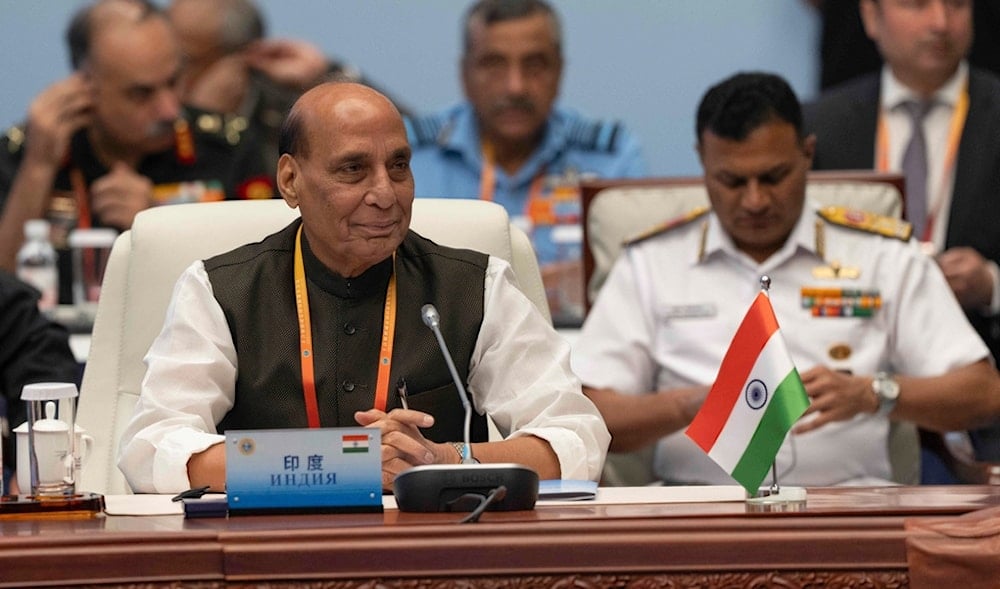India calls for lasting resolution to China border row at SCO summit
India’s Defense Minister Rajnath Singh urged China to seek a lasting solution to their Himalayan border dispute during the SCO defense ministers' meeting.
-

India's Defense Minister Rajnath Singh, left, attends the Defense Ministers' Meeting of the Shanghai Cooperation Organization Members States in Qingdao in eastern China's Shandong province on Thursday, June 26, 2025. (AP)
Indian Defense Minister Rajnath Singh has called on China to work toward a "permanent solution" to the long-standing border dispute between the two countries, according to a statement from India's Ministry of Defense issued on Friday.
Singh made the remarks during a meeting with his Chinese counterpart, Dong Jun, on the sidelines of the Shanghai Cooperation Organisation (SCO) defense ministers' gathering held in Qingdao on Thursday. He emphasized that resolving the India-China border dispute requires a structured and forward-looking roadmap, with a clear focus on restoring mutual trust.
During his meeting with Dong, Rajnath Singh reiterated India’s position that normalization of ties cannot occur unless peace is restored along the LAC. He specifically called for efforts to bridge the trust deficit that emerged following the 2020 confrontation, underscoring the need for sustained dialogue and mutual respect.
India’s Defense Ministry noted that Singh advocated for a permanent and peaceful resolution, not temporary arrangements, signaling New Delhi’s desire to avoid future flare-ups through long-term strategic engagement.
Deep dive into the China-India conflict
India and China share a 3,800 km (2,400-mile) undemarcated border, most of which lies across the Himalayan region and has long been a source of military and diplomatic friction. While both countries have largely managed to avoid open conflict in recent decades, the boundary, referred to as the Line of Actual Control (LAC), remains a disputed frontier.
Tensions escalated dramatically in June 2020 when troops from both countries engaged in a deadly clash in the Galwan Valley, resulting in the deaths of 20 Indian soldiers and four Chinese troops. The incident triggered a four-year-long military standoff in the high-altitude region, with both sides deploying tens of thousands of troops and heavy equipment to forward positions.
Since then, more than 30 rounds of talks have taken place to de-escalate the situation.
In September 2024, Indian Foreign Minister Subrahmanyam Jaishankar indicated that “up to 75% of the disengagement issues” have been resolved, with the remaining challenges focusing on patrolling and the deployment of personnel and weapons along the border.
Only in October 2024 did both militaries agree to a phased disengagement plan, which led to a relative thaw in bilateral ties, though key issues still remain unresolved.
Read more: India, China agree to resume direct flights for first time in 5 years

 3 Min Read
3 Min Read









